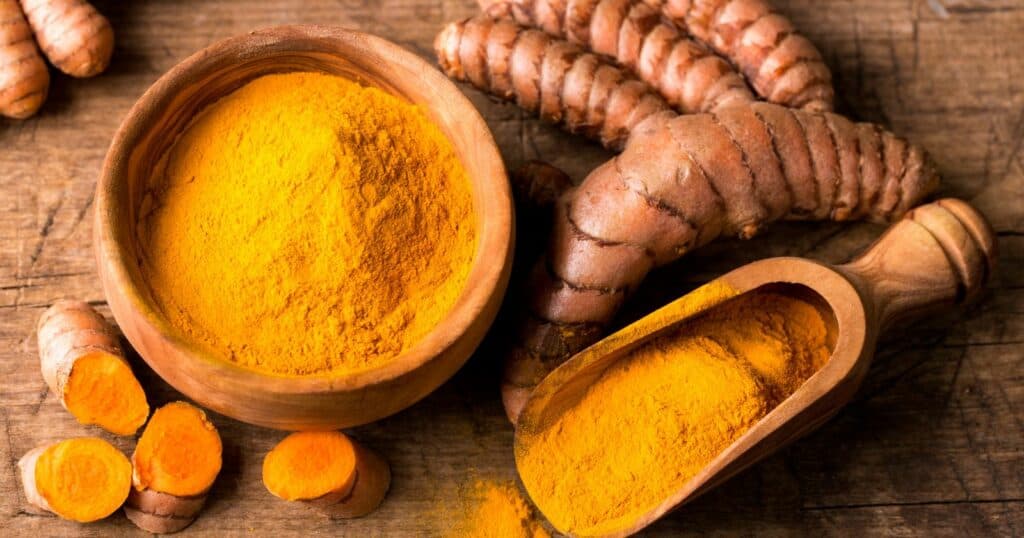Indian cuisine is beloved for its complex flavors and aromas. But it also has a reputation for speeding up digestion. If you’ve ever had an urgent bathroom trip after a spicy curry, you’re not alone! But what exactly causes this reaction?
The answer lies in the unique ingredients and preparation of traditional Indian fare. Spices, oils, beans, dairy, and more team up to stimulate the digestive tract.
This guide explains the science behind Indian food’s laxative effects. We’ll also share pro tips for enjoying your meal without uncomfortable aftermath. Read on to unlock the secrets of Indian cuisine’s influence on your digestive system.
Indian Food Contains Potent Spice Combinations

At the heart of Indian food is a medley of fragrant spices tailor-made to rev up your digestion. Popular ingredients like:
- Chili peppers
- Ginger
- Turmeric
- Cumin
- Coriander
Work together to stimulate gastric juices, speed up transit time, and relax the intestinal walls. Here’s a breakdown of how some key spices effect digestion:
Chili Peppers – Capsaicin triggers stomach lining irritation and secretion of digestive enzymes. Too much too fast can cause diarrhea.
Ginger – Contains compounds called gingerols that enhance gut motility and enzyme production.
Turmeric – Stimulates the gallbladder to release bile, which breaks down fats. Also has anti-inflammatory benefits.
Cumin – Boosts the release of gut-healthy enzymes and aids digestion of carbohydrates and fats.
Coriander – Soothes intestinal spasms and helps relieve gas and bloating.
Eating these pungent spices in combination makes for an extra potent digestive cocktail. But also a very tasty one!
Contamination Risks
While spices play a major role, Indian food’s impact on digestion can also result from contamination in some cases:
- Bacteria like E. coli or Salmonella could be present from unsanitary food handling, storage, or cooking practices.
- Contaminated water used to wash produce, make ice, or prepare beverages could transmit harmful pathogens into food.
- “Traveler’s diarrhea” is very common for visitors to India due to being exposed to different gut flora and bacteria.
Proper food safety training and practices are critical in India to reduce foodborne illness risk. Standards may vary by region and preparation setting.
When dining on Indian cuisine at home or abroad, look for proper hygiene and sanitation certifications to help avoid any contamination-related gastrointestinal issues.
Indian Cooking Techniques Bring Out Spices’ Effects
It’s not just the spices themselves, but also how they are prepared that enhances their influence on your gut. Two key cooking methods are:
Blooming in Oil – Briefly sautéing spices in hot oil helps intensify their flavors and makes them more “bioavailable” or absorbable.
Ghee – Many dishes are cooked with clarified butter or ghee. The fat solubilizes spices’ active compounds while also lubricating food waste.
Long Simmering – Slow cooking melds flavors and softens fiber in bean and lentil curries called dals.
So recipes aren’t just simply dashing spices into a dish. Their digestion-boosting power is skillfully amplified by traditional cooking techniques.
Fibrous Beans and Lentils Add Fuel to the Fire

Another digestive fire-starter in Indian cuisine is its heavy use of legumes and lentils. Key ingredients like:
- Red lentils
- Chickpeas
- Black gram
- Kidney beans
Pack a substantial fiber punch, which both bulks up stool and feeds gut flora. They also contain raffinose sugars that can cause gas and bloating. Some examples:
- A 1 cup serving of boiled chickpeas contains 12.5g of fiber.
- Red lentils have 8g of fiber per cooked cup.
- Black gram packs a whopping 20g of fiber per cup!
Bean-based vegetarian curries and dals are a huge part of Indian menus. This legume loading ramps up food waste volume.
Dairy Products Stimulate Lactose Intolerance
Lactose intolerance is common in those of South Asian descent. Their bodies lack sufficient lactase enzymes to fully digest milk sugars.
Indian fare like:
- Creamy korma curries
- Lassi yogurt drinks
- Paneer cheese
Can trigger bloating, cramps, and diarrhea in the lactose intolerant. Even small amounts of dairy can cause issues.
Those with lactose intolerance should opt for vegan choices or take lactase supplements to aid digestion.
Individual Sensitivity Varies
While Indian food affects most people’s digestion, the severity of reaction depends on the individual:
- Those already with gastrointestinal conditions like IBS or inflammatory bowel disease may experience more intense effects.
- People who eat Indian food regularly tend to develop a higher tolerance over time.
- Stress levels, sleep, exercise, and other lifestyle factors can impact an individual’s digestive response.
- Age and gut health also play a role, with young children and elderly being more sensitive.
So while Indian cuisine has a reputation for quick bathroom trips, the degree of reaction varies based on someone’s digestive sensitivity, gut microbiome, and level of
Listen to your own body’s signals and adjust portion sizes,
Health Benefits Outweigh Quick Bathroom Trips
While Indian food may send you sprinting to the toilet, its health perks far outweigh this one discomfort.
Benefits of a balanced Indian diet include:
- Increased regularity and relief of constipation
- Reduction of toxins through frequent bowel movements
- Lowered risk of gastrointestinal diseases like IBS or colon cancer
- Improved absorption of nutrients due to stimulated digestion
- Anti-inflammatory effects to ease gut irritation
So while the digestive effects may be inconvenient at times, overall they promote a healthy gut!
Tips to Enjoy Indian Food Without Discomfort
Now that you know why Indian cuisine speeds things up, use these tips to enjoy it without tummy troubles:
- Start with small portions to assess your
spice tolerance. - Avoid very fatty, oily, or creamy dishes.
- Request milder levels of
spice at restaurants. - Substitute ghee with vegetable oil when cooking.
- Limit dairy if lactose intolerant.
- Drink plenty of water to aid digestion.
- Take walks after eating to ease abdominal discomfort.
- Try digestive aids like probiotics, yogurt, or kombucha.
With some mindful precautions, you can feast on delicious Indian food without the nasty side effects.
Sample a Flavorful Digestive-Friendly Meal
Here’s an example of a balanced Indian-inspired meal that eases the
- Tandoori chicken breast for protein without fat
- Brown basmati rice instead of naan for whole grain goodness
- Saag paneer made with tofu instead of heavy cream
- Raita yogurt dip with added probiotic powder
- Kheer rice pudding made with almond milk for dessert
With thoughtful substitutions, Indian food can be kinder on your stomach without sacrificing an ounce of flavor.
The Takeaway: Enjoy This Vibrant Cuisine in Moderation
Indian cuisine has an almost magical effect of bringing people together through its exquisite aromas and taste while also influencing digestion. With knowledge of how its traditional ingredients and cooking methods work, you can savor its benefits safely.
The key is balance. When enjoyed in moderation with smart substitutions, Indian food’s scrumptious flavors far outweigh any mad dashes to the restroom. Just be sure to listen to your body. Hopefully this guide has shed some light on why we all feel the need to poop after eating our favorite curry or dal!





